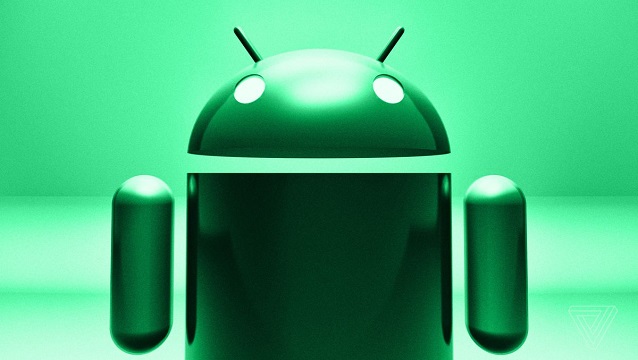Not long ago app development and app marketing was not as competitive as it is today.
A mediocre design, a mediocre user experience, and mediocre reviews were enough to get your app approved by the masses, let alone the app stores.
No more!
With app stores being flooded with so million apps – there are 3.3 million Android apps on Google play and 2.2 million ioS apps at the App stores you really need to think out-of-the-box to develop an app that users might feel like downloading these days.
As per App Annie’s 2017 report, a user these days has more than 80 apps on their phone, but uses nearly 40 apps per month.
So, how do you ensure that your app is part of those 40 apps that people are happy to access on daily basis?
Enter AI and MI.
The current crop of developers needs to look over and beyond average design and creativity and train their sights on Gen-next technologies to design and market apps that people love to use.
Gen-next technologies such as AR, VR, IOT and AI are the new normal in the app arena. Smart apps and services that offer personalized and interactive experiences to users are highly in demand. Taking a cue from Amazon Echo, Apple’s Siri, Google Home, and Assistant, people are expecting similar UI and UX experiences for their apps.
In short, people have become choosier about their apps.
Not surprisingly, even businesses are keen on leveraging Artificial Intelligence and machine learning to develop customized mobile apps.
Today AI combined with machine learning can provide apps with features such as image recognition, object identification and more to create smart apps. Interestingly, even Google has adopted AI-first approach and has launched AI tools. Which means Android app developers can take advantage of these tools to create high-end applications.
Here we walk you through a few major AI factors that could take the Android app development to the next level.
#1. Face Recognition
The feature is directly related to safety measure, and so you could use this in a variety of apps. Face detection is about identifying the user’s face through digital images. The real-time face detection is imperative for security reasons and especially useful to monitor the movement of objects or persons. Both Android and iOS devices could leverage this technology in the camera to identify the face in different frames.
#2. Smart Replies
Yes, I know. You have already been using quick replies on Gmail.
For the starters, Google had launched auto-generated replies for emails a year ago. Today, nearly 10 percent of mobile responses are using Smart Reply. The positive reception of this feature has prompted Google to use it across G-suite to solve customer issues.
Now, even top app development companies could easily integrate this feature into their business apps, if they really want to save time of its employees spent on correspondence and communication.
Sure, the integration of this technology might increase your app development cost. But then, it’s worth it. You could get a higher ROI and also improve your brand reputation through this app.
#3. Personalization
Personalization is the new normal in case of apps. The best news is that it gains you loyal customer base. AI backed by predictive analytics help provide personalized recommendations to the users. More than anything, it enhances customer experience. Plus more and more customers remain connected with your business through your app.
Shortly, app personalization would be on the radar of many major businesses. Facebook and Netflix are already ahead in the use of Artificial Intelligence applications. Even eCommerce companies are partnering with companies like IBM Watson to offer personalized services in their apps.
#4. Chatbots
Chatbots have revolutionized the enterprise mobile app space. They effortlessly replace humans by communicating with the real audience, gather data and offer improved customer services to users on the move. The best part? They offer human-like interaction. A recent survey has revealed the eCommerce, insurance industries and healthcare would be the biggest beneficiaries of the chatbot.
If you have chatbots working for you round the clock, you could even think of doing away with some of your customer care executives. Chatbot development or integration is going to be a significant part of app development in the coming days.
For example, the Concierge app Mezi. The app uses machine learning and NLP to provide recommendations of travel, fashion, and other gift ideas to the user.
Check: How to develop a chatbot
#5. Speech Recognition
As the name suggests, speech recognition means to automatically and accurately recognize human speech. Conversational User Interfaces (CUI) backed by speech recognition is coming up in a massive way as the best replacement of Graphical User Interface (GUI).
Sure, speech recognition is not a new technology. It’s just that the technology is evolving. Google is powering these improvements and is opening up its API so that developers could freely use it for creating their apps.
#6. Automated Writing
AI has been influencing the journalism field for some time now. It’s currently being used to write those kinds of stories that are data-oriented.
In 2016, AP used it to cover minor leagues.
The electronic writing technology developed by companies like Automated Insights is engineered in such a way that they can quickly tap into vast reservoirs of data effortlessly and generate perfect informational pieces.
Over to you
The practical applications of AI are broad and deep and are quickly developed.
What do you think? What kind of AI technology best fits your app bill?
Author Bio: This is Jennifer Warren, staff writer with GoodFirms. A bookworm at heart, she has successfully guest blogged for top sites such as Crazyegg, Semrush, Searchenginepeople, Sitepronews, Volusion.com, Socialnomics, jeffbullas, mediapost among others.
